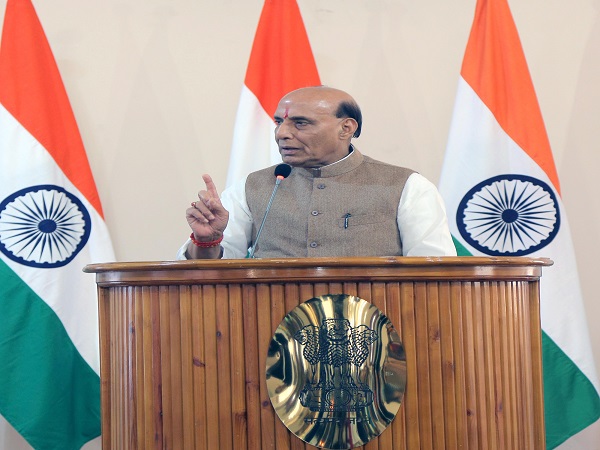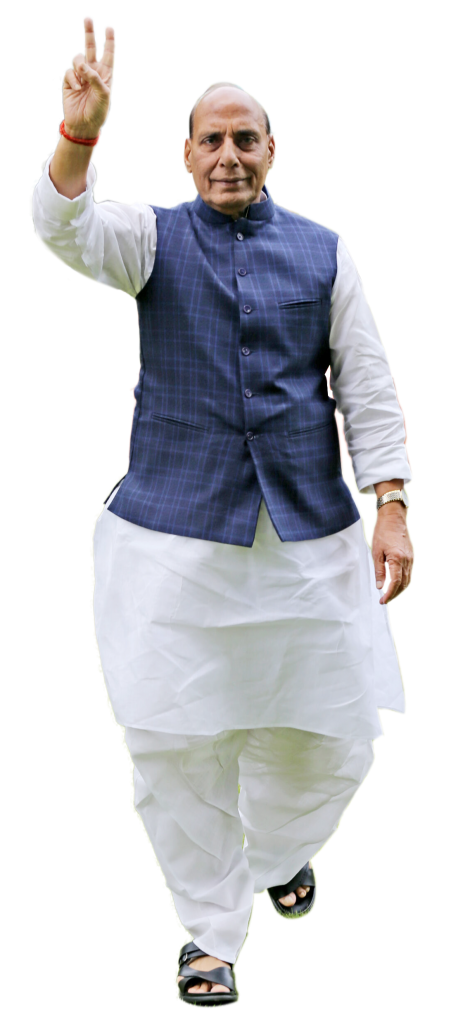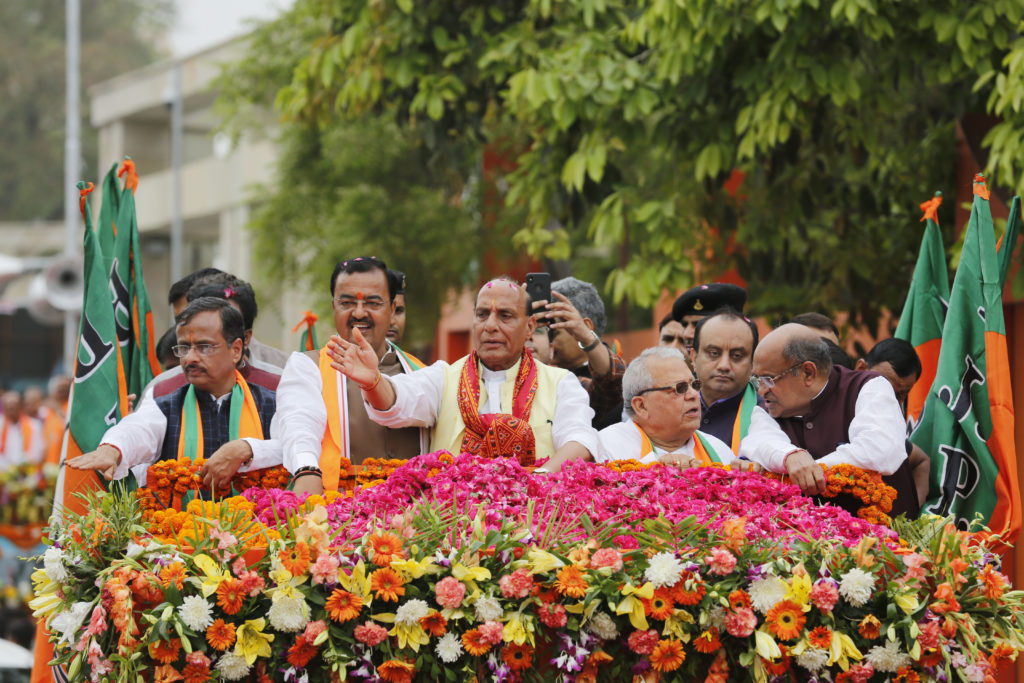During his tenure as Education Minister in Uttar Pradesh, he took some landmark decisions like introducing the Anti Copying Act and Vedic Mathematics in the syllabus and correcting various distorted portions of history textbooks.
In March 1997 when he became State President of Uttar Pradesh unit of BJP, he provided exemplary leadership in expanding the party base and strengthening the organisation. He played a key role in saving the BJP-led Government twice during the political crisis.
In October 2000, he became Chief Minister of Uttar Pradesh, India’s most populous state, before that, in November 1999 he became Union Minister of Surface Transport in the Shri Atal Bihari Vajpayee government.
In 2003, Shri Rajnath Singh became Minister of Agriculture in Shri Atal Bihari Vajpayee’s cabinet at Centre.
In his role as Minister of Union Surface Transport, he initiated the NHDP (National Highway Development Programme), a dream project of Prime Minister Shri Atal Bihari Vajpayee.
As Union Minister of Agriculture and subsequently, for Food Processing he spearheaded epoch-making projects like Kisan Call Centre and Farm Income Insurance Scheme.
In his role as Chief Minister of Uttar Pradesh and later as Union Minister with different portfolios, he worked to strengthen the democratic edifice of the country and was devoted to the welfare of people, especially the marginalised sections of the society.
In the same manner as the National President of Bharatiya Janata Party (BJP), in the true spirit of an “organisation man”, he worked tirelessly to strengthen the party and take party ideology to the masses and to every corner of the country.
As BJP National President he covered the entire length and breadth of the country. He also embarked on the Bharat Suraksha Yatra which covered several States taking up the cause of increasing terrorist activities and threats to internal security.
He laid emphasis on the issues of public interest like spiralling prices of essential commodities, farmers’ grievances and cynical minorityism practised by the UPA Government.
In 2014 he became Union Minister of Home Affairs in the Shri Narendra Modi government and in 2019 was made Raksha Mantri of the country.

In his entire public life, Shri Rajnath Singh has stressed upon the need for “credibility” in political life. In his several speeches, he has remarked that the politics in the country is facing a “crisis of credibility” due to the difference in words and deeds of the politicians and this needs to be checked.
A firm believer in the greatness of India’s cultural heritage, he has always motivated the youth of the country to take inspiration from India’s ancient history and cultural heritage. He believes that any pursuit of modernisation is a waste without knowing, acknowledging and respecting our civilisational values.
Shri Rajnath Singh believes in debates and deliberations, consensus and cooperation as the bedrock of thriving democracy. When in 1975 National Emergency was imposed by then Prime Minister Smt Indira Gandhi, he vehemently opposed the move. He was arrested in 1975 and was in detention for two years.
Another cause that is close to his heart is the empowerment of women. In 2007 as BJP National President proposed a 33 per cent reservation for women in the party set-up. As a Home Minister of the country, in 2015 he announced 33 per cent of reservations for women in all paramilitary forces, including the Central Industrial Security Force (CISF).

He firmly believes that India has potential and spirit, and is destined to be the Vishwa Guru – a world leader. He believes that ‘Aatmanirbharta’—self-reliance is the road to attaining this status. So, when Prime Minister Shri Narendra Modi gave a clarion call for ‘AatmaNirbhar Bharat Abhiyaan’ he wholeheartedly supported it.
Prompting the spirit of ‘Make in India’ and ‘AatmaNirbhar Bharat’ Raksha Mantri Shri Rajnath Singh in August 2020 decided to ban the import of 101 defence-related items and in May 2021 it was decided that another set of 108 military weapons and systems including next-generation corvettes, airborne early warning systems, tank engines and radars will be entirely made in India.
Shri Rajnath Singh was born on 10 July 1951 in the Bhabhuara village of Uttar Pradesh. Born into a family of farmers, Rajnath Singh grew up to secure a master’s degree in physics from Gorakhpur University and served as a lecturer of Physics at K.B. Post-Graduate College Mirzapur, Uttar Pradesh.
Even after being in politics for more than five decades, the teacher in him is alive. And, that is the reason why he loves to interact with students and the youth of the country. He never misses an invitation to be part of a convocation or interaction with the youth and students.
As Defence Minister, he has undertaken several initiatives to increase women’s participation in various departments and field operations. The proposal for induction of women in the corps of military police in the Indian Army as soldiers was taken by him and the decision to recruit a total of 1,700 women military personnel was also taken under his leadership.
Steps like increasing the tenure of women officers in SSC from 10 to 14 years and improving their promotional prospects in the Army have also been taken since he assumed the office of Raksha Mantri. As Raksha Mantri, he is working towards strengthening ‘Nari Shakti’ in the Indian Armed Forces.
His dream is to see India as a country that provides leadership to the world not only in the economic fields but all walks of life.
Shri Rajnath Singh’s political life is a clear emulation of the idea of “Antyodaya”— the rise of the last person” the political philosophy of Shri Deendayal Upadhyaya.
He is contesting the Lok Sabha election from Lucknow as BJP Candidate for the third consecutive time.





